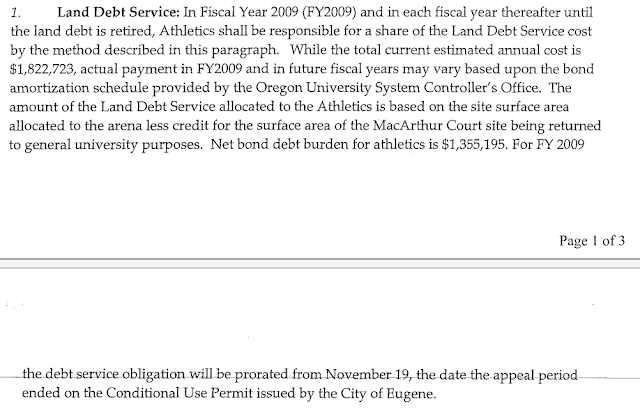The latest report from RG reporter Diane Dietz on the Presidential Archives is here. Oregonian reporter Rich Read has more here. Previous stories and emails about the Presidential Archive are here.
While Duck PR flack Tobin Klinger and Interim UO President Scott Coltrane are hard at work spinning the possibility that the archives may contain too much – such as potentially confidential student and faculty records – the Dietz story raises the possibility that they contain too little:
Documents are moved from the president’s office to the archive using a file-transfer protocol. In 2009, Frohnmayer’s executive assistant skimmed the documents, flagging “confidential or otherwise sensitive items” before the documents were transferred to the library.
Generally, that’s how archiving works. The provider of the documents determines what’s confidential or not otherwise disclosable under exemptions to public records law.
The UO’s “records management transmittal form” has a checkbox where the provider indicates whether confidential records are included in the transfer.
Professional archivists long have struggled with the need for openness and the requirements for confidentiality. They observe provider restrictions — when they are informed of them — but often, they also try to persuade the provider to restrict a minimal amount of material for the shortest period of time, according to the Society of American Archivists and the American Library Association.
“Although access may be limited in some instances, archivists seek to promote open access and use when possible,” according to a statement of the society’s core values.
“By documenting institutional functions, activities and decision-making, archivists provide an important means of ensuring accountability,” the core values statement reads. “In a republic, such accountability and transparency constitute an essential hallmark of democracy.
“Public leaders must be held accountable both to the judgment of history and future generations as well as to citizens in the ongoing governance of society.”
Hard to argue with that as a worthy goal.
As UO president from 1995 to 2009, Dave Frohnmayer made many interesting deals. Some examples that have come to light from public records requests by myself and others, such as former RG reporter Greg Bolt and the Oregonian, include agreements between UO and Phil Knight over the conditions for Knight’s Jaqua Center for Student Athletes, here:
The Jaqua Athletes Only Study Center story just gets weirder. We’ve now managed to get a few more of the peculiar agreements between UO and Phil Knight’s “Phit LLC” from the UO lawyers.
- License agreement, Dyke and Knight, 1/8/08 (UO “leases” land to Phit, to allow no-bid construction.)
- Amendment 1, Frohnmayer and Knight, 1/8/08 (UO to pay for parking, computers, staff.)
- Amendment 2, Dyke and Slusher, 7/31/2008 (UO can’t use extra space but must pay 2/3 cost of landscaping it)
- Amendment 3, Dyke and Slusher, 4/1/2009 (UO to pay for SEED energy improvements)
- Amendment 4. Dyke and Slusher, 4/1/2009 (The contractor for the Academic Center has contracted with UO for the Arena and Parking Garage. Weird, not sure what that’s about.)
Another example would be the “Memorandum’s of Understanding” between Frohnmayer and Duck booster and onetime UO Athletic Director Pat Kilkenny giving the UO Athletic Department a variety of secret subsidies and discounts on overheads rates, here:

It took a petition to the Oregon DOJ to make those public.
So are the appropriate records regarding these and other agreements, and the negotiations that led to them, in the UO Presidential Archives as state law seems to require? Or were they “flagged as confidential” and then “disappeared?”
The electronic and paper archives are all public and available to any library patron (supposedly in confidence), so it shouldn’t take much more than a visit to UO’s Knight Library to find out.
The basic indexes are here:
I don’t see anything in Dietz’s story that implies that Frohnmayer or anyone else committed the class A misdemeanor of destroying (as opposed to “flagging”) public records. But I think a big problem with the public records process at UO is the extent to which it relies on voluntary disclosure and biased determinations about exemptions. Given UO’s extensive record of abuses, there should be a disinterested party compiling records and making decisions about what to withhold.
In case JH is confused, I did *not* write:
“The first thing we do, let’s kill all the Librarians.”
My advice? Ask Ed Ray to give you political asylum at OSU. Julian’s still stuck in that tiny apartment at the Ecuadorian embassy, and Chelsea says the food’s even worse in Leavenworth. Not that Corvallis has much variety either.
OSU could really use some more bodies for their Econ department, er, School of Public Policy.